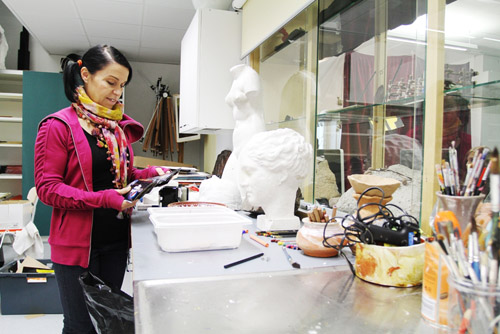
Nations around the world continue to re-think and reform education policies to better prepare children for life and work in a rapidly changing world which places a high value on innovation. What vocational skills will future teachers require to do this? What professional development is needed to prepare them for the 21st century classroom? What are the different roles and responsibilities of 21st century school leaders? How do countries succeed in developing these leaders? What lessons can we learn from successful education systems?
Finland’s schools became famous around the world because of the PISA study. This survey, conducted every three years by the Organization for Economic Co-operation and Development (او ای سی ڈی), compares 15-year-olds in different countries in reading, ریاضی, اور سائنس. Finland has ranked at or near the top in all three competencies on every survey since 2000, very close to other high achievers such as South Korea and Singapore.
I had the pleasure of meeting State Secretary Tapio Kosunen during his recent visit to New York to discuss some of Finland’s educational priorities going forward.
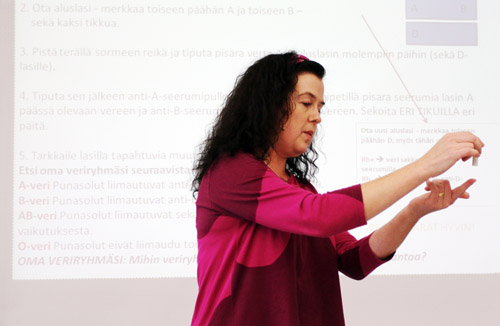
Where does creating future innovators stand in Finland’s educational priorities?
Nurturing innovation is an important priority for us in our school system. What it means to innovate is important when we think about a high quality education. We want more economic growth and nurturing innovation is an important way to do that. We have good examples of work being done in this area in Finland, مثال کے طور پر, the research that has been done at Aalto University.
How do you believe your education system nurtures the theme of innovation — what are the building blocks or the key drivers?
You have to think about education incorporating both critical and creative thinking, and these things can and should be nurtured in children starting as young as possible. You then have to find solutions to combine things in a creative way, ہے, to include all the important factors affecting a problem together. I also think our view of learning is that you learn all your life and you learn from many different sources, and the individual is the one who has to combine this knowledge and to find solutions. Nurturing innovation is a question of orientation, which is written into our core curriculum because everything comes back to education.
Finnish teachers have become the gold standard for many educators around the world. Can you talk about the training and preparation you believe have been instrumental in achieving this goal?
سب سے پہلے, I believe our teacher training programs are of high quality because our teachers are required to do a masters degree. This degree is research based but it also requires our teachers in training to work in schools. And so their training combines theory and practical training periods. All our teachers receive help from a mentor teacher at the teacher training school who is giving feedback all the time on their teaching. I like to think they also acquire a sense of creativeness in terms of planning their lessons and thinking of the whole teaching area they are being prepared for. Our teachers are encouraged to think creatively.
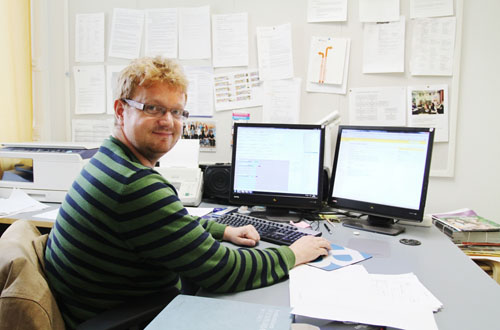
منتظر, what vocational skills will teachers of the future require?
I believe in the future the most important vocational skills required of teachers will fall into four categories. These are:
1. Knowledge of the subject area they are teaching.
The teacher of the future must be a professional of knowledge and have a holistic, in-depth knowledge of his subject areas, تعلیم, تعلیم, and the related expert information networks.
2. Expertise in learning and teaching.
As the concept of learning becomes broader and more essential over people’s lifetimes, the teacher of the future must be able to apply this expertise flexibly across the boundaries of age, municipalities and educational institutions, in many different forms, including on-line environments.
3. Social and ethical competence.
The teacher of the future’s work must include passing on social and ethical values such as democracy, human dignity, civic participation and the well-being of people, and being able to engage in multi-professional cooperation and coordination with the home.
4. Versatile skills in practical work in schools.
The teacher of the future must have practical skills needed in the daily life of schools, including running of the school, rights and duties of the teacher and pupil, and financial and administrative issues, in order to continue our practice of incorporating decision making by teachers at the school level in our education system.
What do you believe are the characteristics of a strong school leader?
A strong school leader has to understand how the school operates as part of the overall society. I think the most important thing is that he or she is a pedagogical leader. He has to be a child-centered thinker. He must understand how to enhance learning and how to support teachers in their work. Then comes the administration, taking care of budget, and doing timetables. But pedagogical leadership must come first and he or she must be able to share it. What I mean by that is he or she sets the vision and must ensure that the goals of the core curriculum are being met along with learning outcomes, but he has to appreciate his teachers and remember they are professionals. They have a professional way of thinking about their work. He has to be able to trust and rely on them. Our teachers in Finland are quite autonomous already. They are allowed to choose their methods and they are allowed to be creative.
What do you most look forward to learning from OECD world conferences?
I am interested in learning more about leadership and teacher training from countries around the world because it is important to understand how to continue to motivate teachers and inspire them to stay in their professions long term. Teacher education in Finland has been a popular choice by international comparisons. Young people in Finland are interested in education and surveys indicate that jobs in the educational sector are among five of the most popular professions. I am interested in learning more about the Asian countries and the USA and Australia. Each of the cultures is different to Finland and that is a good thing because it makes the comparisons very interesting indeed. One thing, مثال کے طور پر, that we are interested in learning more about is how to use technology and social media in education more effectively. The OECD conference is all about what we can learn from the rest of the world, and I think we can learn a lot.
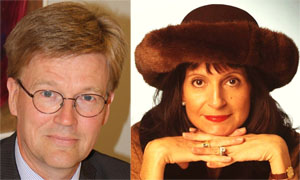
Photos courtesy of Finland’s Ministry of Education and Culture, archive, Institute of Design 2011.
تعلیم کے لئے عالمی تلاش میں, سر مائیکل باربر سمیت میرے ساتھ اور عالمی سطح پر معروف فکری رہنماؤں (برطانیہ), ڈاکٹر. مائیکل بلاک (امریکہ), ڈاکٹر. لیون Botstein (امریکہ), ڈاکٹر. لنڈا ڈارلنگ-ہیمنڈ (امریکہ), ڈاکٹر. مادھو چوہان (بھارت), پروفیسر مائیکل Fullan (کینیڈا), پروفیسر ہاورڈ گارڈنر (امریکہ), پروفیسر کریں Yvonne ہلمین (نیدرلینڈ), پروفیسر کرسٹن Helstad (ناروے), جین Hendrickson نے (امریکہ), پروفیسر گلاب Hipkins (نیوزی لینڈ), پروفیسر Cornelia Hoogland (کینیڈا), مسز. چینٹل کوفمین (بیلجیم), ڈاکٹر. Eija Kauppinen (فن لینڈ), پروفیسر ڈومینک Lafontaine (بیلجیم), پروفیسر ہیو Lauder (برطانیہ), پروفیسر بین لیون (کینیڈا), پروفیسر بیری McGaw (آسٹریلیا), شیو ندار (بھارت), پروفیسر R. نٹراجن (بھارت), ڈاکٹر. ڈینس پوپ (امریکہ), شریدر رازگوپالن (بھارت), ڈاکٹر. ڈیانے Ravitch (امریکہ), سر کین رابنسن (برطانیہ), پروفیسر Pasi Sahlberg (فن لینڈ), Andreas کی Schleicher (پیسا, او ای سی ڈی), ڈاکٹر. انتھونی Seldon نے (برطانیہ), ڈاکٹر. ڈیوڈ Shaffer کے (امریکہ), ڈاکٹر. کرسٹن عمیق کر رہے ہیں (ناروے), چانسلر اسٹیفن Spahn (امریکہ), ایوز Theze (اسکول Français کی امریکی), پروفیسر چارلس Ungerleider (کینیڈا), پروفیسر ٹونی ویگنر (امریکہ), سر ڈیوڈ واٹسن (برطانیہ), پروفیسر Dylan کے Wiliam (برطانیہ), ڈاکٹر. مارک Wormald (برطانیہ), پروفیسر تیو Wubbels (نیدرلینڈ), پروفیسر مائیکل نوجوان (برطانیہ), اور پروفیسر Minxuan جانگ (چین) وہ تمام اقوام کو آج سامنا ہے کہ بڑی تصویر تعلیم سوالات دریافت کے طور پر. تعلیم کمیونٹی پیج کے لئے گلوبل تلاش
C. M. روبن وہ ایک موصول ہوئی ہے جس کے لئے دو بڑے پیمانے پر پڑھا سیریز کے مصنف ہے 2011 میں Upton سنکلیئر ایوارڈ, “تعلیم کے لئے گلوبل تلاش” اور “کس طرح پڑھیں گے?” انہوں نے تین bestselling کتابوں کے مصنف ہیں, سمیت Wonderland میں یلس اصلی.


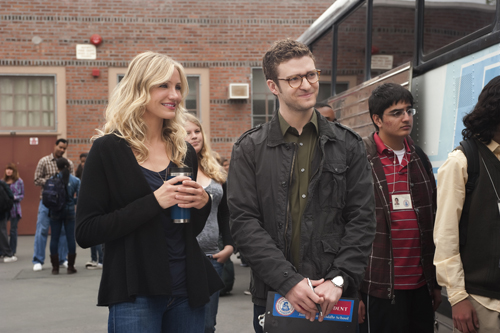

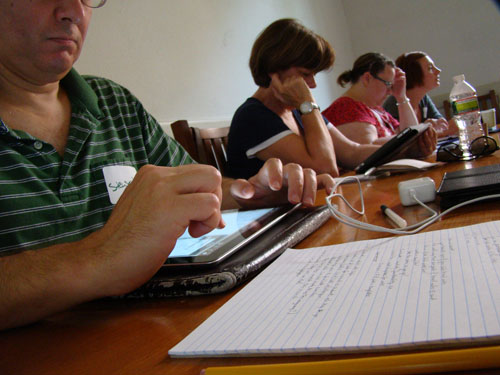
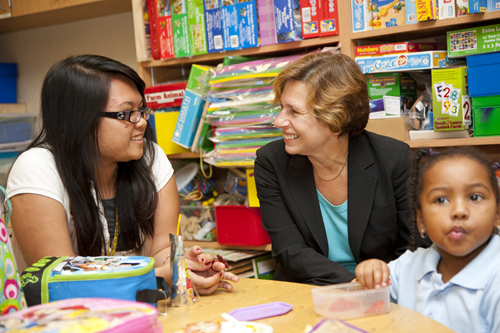
حالیہ تبصرے